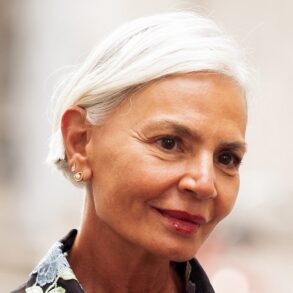The sun is the most devoted friend of a surplus of growing South Asian girls; its warmth envelopes us with a tired layer of sweat, its light occupies our time into the late falling of night, and its shine paints us a deeper brown coloring. As I grew, my time with the sun grew; each scorching summer day would end with my legs staggering inside and my brown skin with a deeper tint of a tan. Each scorching summer day ended with my mother’s consistent rambling of her dislike of my changing skin, for how darker I had become, for how “This isn’t what you’re supposed to look like, babu!”
As a child, I didn’t understand that my color, along with other South Asian girls who shared a similar one, would bring such distaste. As if I had owed my family and myself a new look, a new identity different from darker skin, I ventured off towards makeshift solutions; this ranged from makeup ten times lighter than my shade to moisturizers that promised a whitened look. My curiosity about the topic and desperation for those solutions has led me to discover the first campaign combating colorism in India, crafted by the hands of Kavitha Emmanuel.
As a young Indian girl, Emmanuel was raised in a home that held the belief that all humans are equal. However, she traveled an all too familiar path of hostility directed toward her natural tone which was a stark difference from what she was taught at home. She has recognized the need for people who have faced skin color discrimination for a platform for themselves. Building her own program for acceptance, she has established herself as an internationally recognized speaker and panelist, constantly working to uplift girls and women.
In her TED Talks, she shares the personal struggles and stories of numerous girls who hold many insecurities stemming from colorism to set a sense of empathy for her listeners. She ushers in the motto “I am dark and talented.”
She achieves this through her non-profit organization, Women of Wonder, and a globally recognized campaign, Dark is Beautiful. The campaign was launched in March of 2009 to battle the toxicity behind the idea that one’s worth is measured by one’s skin color, recognizing a struggle tackling the lives of several individuals worldwide, especially in South Asia with its history of displeasure regarding dark skin. Her unwavering determination towards her initiative allows for children, specifically young girls, and even adults to embrace what they have been gifted with and grow comfortable in their skin and flaunt its beauty.
Emmanuel’s perseverance concerning her work has allowed it to reach a universal spectrum; her constant diligence towards her goal of slowly ridding the prejudice targeted towards darker skinned individuals with her campaign has brought upon a motivation that further spreads knowledge of it Several research papers concerning the topic of colorism, guided by her efforts, have been initiated in notable academic institutions such as Harvard, and the campaign has expanded its message through entertainment with channels like HBO Vice, NPR, and Netflix.
Additionally, in her TED Talks, she shares the personal struggles and stories of numerous girls who hold many insecurities stemming from colorism to set a sense of empathy for her listeners. She ushers in the motto “I am dark and talented.” This mantra that she encourages serves as a reminder that dark skin is not a stop, a prevention at reaching one’s goals and achievements.
Dark skin is part of one’s identity and has no interference with someone’s worth as an individual. Emmanual has built a bridge between her audience and her work, one that displays the words of several relating to the issues of colorism to exhibit the normalcy of self-doubt as well as to combat its detrimental effects.
Helping people find their footing in their skin, to grow within it, and to embrace their shade, she serves as a constant inspiration for young children, and students. She stands as an artist who paints over the canvas of aversion with the colors of acceptance and brings a celebration for the billions of shades of Indian, of people. Taking influence from Emmanuel’s work, young children now learn about the topic of colorism and how to combat it with a good-natured intent.
Teens and adults also have an example of how to approach a real-world issue and introduce it into their communities with a sense of open-mindedness. The youth has earned a motivating figure who has built a new path that sheds light upon the prejudice of colorism and acknowledges the diversity of the numerous skin complexions shared across the globe.
This essay won third place in the high school category at the 2023 Essay and Art Contest on Civil and Human Rights organized by Dalit Solidarity Forum in the USA and Hindus for Human Rights. The theme for this year’s contest was: Which South Asian Social Justice Activist Do You Admire and Why?
Titas Mukherjee is a current junior from North Carolina, with a deep-rooted passion for writing. She writes in the hope of acknowledging the feelings we have no words for and embracing the awkward beauty of adolescence.
This post was originally published on this site be sure to check out more of their content.






